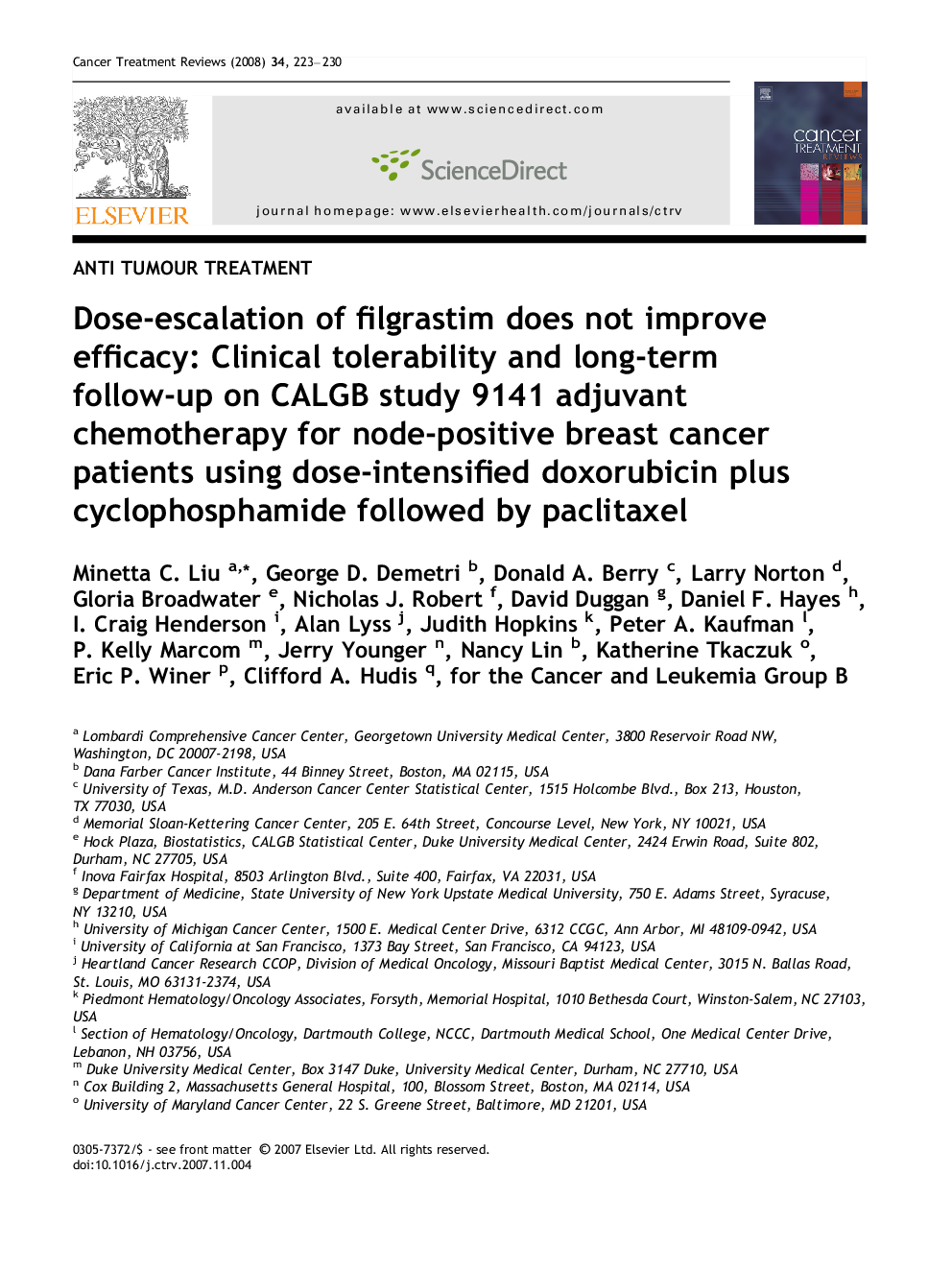| کد مقاله | کد نشریه | سال انتشار | مقاله انگلیسی | نسخه تمام متن |
|---|---|---|---|---|
| 3980649 | 1257446 | 2008 | 8 صفحه PDF | دانلود رایگان |

SummaryPurposeTo assess the safety, tolerability, and clinical outcomes of an adjuvant chemotherapy regimen designed to incorporate a non-cross-resistant agent (paclitaxel, T) with a maximally dose-intensified regimen of doxorubicin and cyclophosphamide (AC) in conjunction with hematopoietic growth factor support (recombinant human granulocyte-colony stimulating factor; G-CSF; Filgrastim). A secondary aim was to assess if a higher dose (10 mcg/kg/day) of G-CSF is more efficacious than the conventional dose (5 mcg/kg/day) in this setting.Patients and MethodsFemale patients with early-stage, node-positive invasive breast cancer were eligible for this multicenter, cooperative group feasibility trial that was designed as the pilot study for a larger randomized clinical trial. The protocol treatment comprised five cycles of dose-intensified AC (75 and 2000 mg/m2/cycle, respectively, intravenously every three weeks) with G-CSF support, followed by an additional four cycles of T (175 mg/m2 by 3 h intravenous infusion, every three weeks). Patients were randomized to receive one of two dose levels of G-CSF (5 vs. 10 mcg/kg/day) during AC chemotherapy. Data on both short-term toxicity and long-term survival were collected.ResultsOne hundred and seventy two node-positive patients with operable primary breast cancer were accrued to this trial between February 1993 and April 1994. 130 of the 172 patients (76%) completed all protocol-specified therapy. Of the 42 early study withdrawals, 23 were due to unacceptable acute treatment-related toxicity. No differences in toxicities or clinical outcomes were noted between the two different dose levels of G-CSF support. At 6.8 years median follow-up, relapse-free survival (RFS) and overall survival (OS) rates for all patients are 70% and 78%, respectively. Ten patients developed second malignancies during follow-up, including three cases with a hematologic malignancy (2% incidence).ConclusionThe delivery of dose-intensified AC followed by T was feasible in this large-scale pilot trial, although significant acute toxicities were commonly encountered. The data confirmed the acceptable tolerability of T after aggressive myelotoxic therapy in the adjuvant setting, leading to a larger randomized clinical trial comparing three dose levels of doxorubicin in AC with or without the addition of T (CALGB 9344). Supportive care using twice the conventional dose of G-CSF did not significantly improve the tolerability or change the toxicities of this regimen, and the occurrence of secondary malignancies is consistent with the emerging risk profile of dose-intensive regimens with growth factor support. With long-term follow-up, the clinical outcomes remain relatively favorable and correlate with such expected prognostic factors as the number of involved nodes and hormone receptor status.
Journal: Cancer Treatment Reviews - Volume 34, Issue 3, May 2008, Pages 223–230